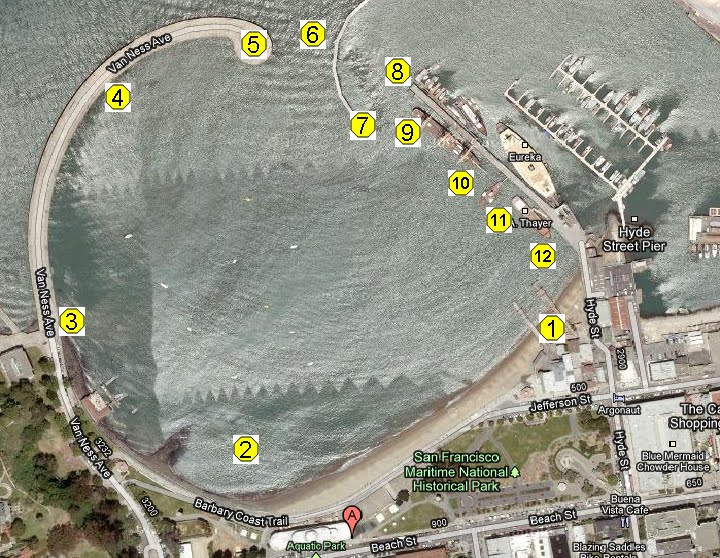Sunday 02/21/10
In the beginning, I had no difficulty at all capturing my thoughts about this project. In fact, at first, I had a hard time keeping pace with the unfolding events related to making a commitment to try and conquer one of the world’s most challenging pinnacles of athletic achievement. With all due respect to Moses, Mohammed, and Joseph Smith, it flowed from the keyboard like I was taking dictation from God. Actually, I am paraphrasing a line from Anne Lamott’s book, “Bird by Bird.” In it, she refers to a writer for whom this effortless creativity abounds. Ms. Lamott warns, however, “This is a very hostile and aggressive position. One might hope for bad things to rain down on a person like this.”
Among the options for publishing this blog, I promised Google that these entries would be devoid of adult content. When writing about the South Enders, it’s almost impossible to avoid adult themes, but I don’t think that counts. Words generally accepted as profane probably do cross the line, though, so I’ll refer to one of my favorite chapters in “Bird by Bird” with the adulterated title: “[Really Crummy] First Drafts.”
In this chapter she plumbs a subject to which she will repeatedly return. Ms. Lamott says that it is a misconception to believe that successful writers “take in a few deep breaths, push back their sleeves, roll their necks a few times to get all the cricks out, and dive in, typing fully formed passages as fast as a court reporter.” Being successful in the trade herself, she naturally knows “some very great writers, writers you love who write beautifully and have made a great deal of money, and not one of them sits down routinely feeling wildly enthusiastic and confident. Not one of them writes elegant first drafts.” Then she admits one exception, “but we do not like her very much. We do not think that she has a rich inner life or that God likes her or can even stand her.” When she mentioned this to a friend of hers who happened to be a priest, he replied, “You can safely assume you’ve created God in your own image when it turns out that God hates all the same people you do.”
I have the memory (perhaps recovered) that Isaac Asimov once commented that great prose was generated, “not in the writing, but in the rewriting.” This thought is echoed in Ms. Lamott’s book and most other treatises on the writing process and profession. When it comes to rewriting, I’m forced to admit that “I resemble that remark.” This is not to say that the prose is great, but that what finally reaches the blogosphere is a substantially improved product due to incessant rewriting. Getting those initial words down on the screen has become a somewhat steady struggle and I must go over and over the original raw material as if carding exceptionally coarse wool by hand.
A wonderful aspect of the blog form of publishing is that rewriting is genuinely organic. A host of (sometimes anonymous) readers provide free copy editing and fact checking. How many steps is it actually from the Dolphin Club deck to the men’s locker room? How long was Mike R. actually in the water for that New Year’s Day Alcatraz swim in 49 degree water? Isn’t your grammar a bit unparallel in this passage? Are you truly determined to use that unwieldy word? Probably just as valuable is the ability to reread old entries during a lunch break from work and easily administer a little word chiropractics: tweak a phrase, add alliteration, or axe superfluous text.
Charles Dickens must have had a pre-internet experience of this sort. By publishing his stories in serial format, he could benefit from public reaction to each episode. He could shape subsequent installments with the derived insight. It’s quite possible that when he assembled these entries into a complete book, he took the opportunity to give everything another once-over.
Generating the raw wool—brittle, dry, and wiry as it might be—is definitely the hard part. On this, Anne Lamott should have the final words. “You turn on your computer and bring up the right file…. You begin rocking, just a little at first, and then like a huge autistic child. You look at the ceiling, and over at the clock, yawn, and stare at the [screen] again. Then, with your fingers poised on the keyboard … you try to quiet your mind so you can hear what that landscape or character has to say above the other voices in your mind. The other voices are banshees and drunken monkeys. They are the voices of anxiety, judgment, doom, guilt. Also, severe hypochondria…. Yet somehow in the face of all this, you clear a space for the writing voice, hacking away at the others with machetes and you begin to compose sentences…. It is a matter of persistence and faith and hard work. So you might as well just go ahead and get started.”
Hmmmm. Sounds just like training for swimming the English Channel.
6 years ago


No comments:
Post a Comment